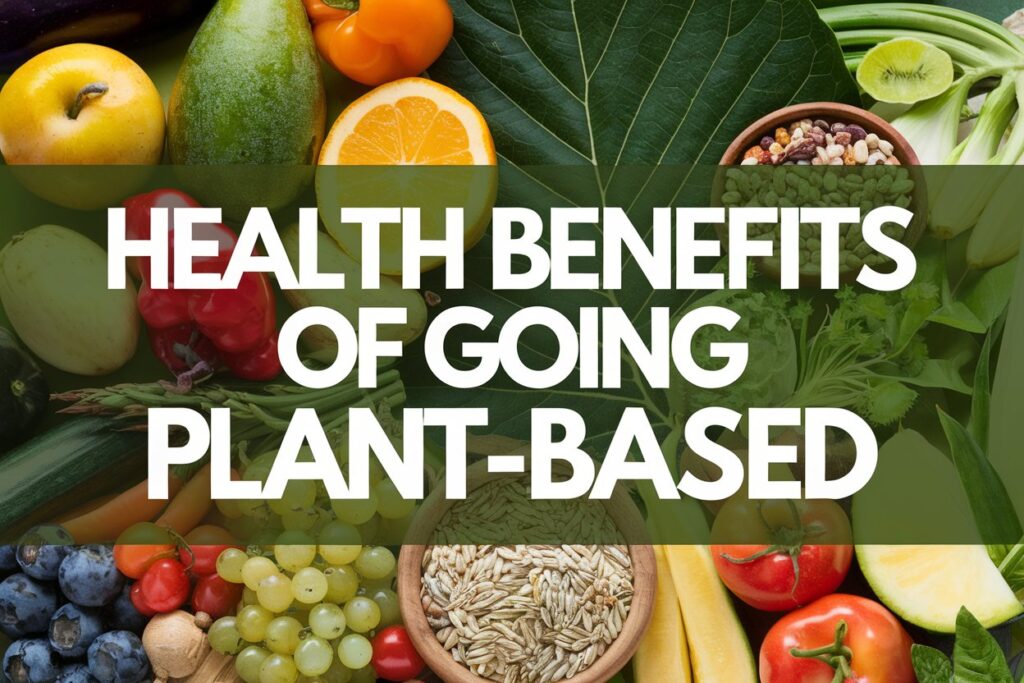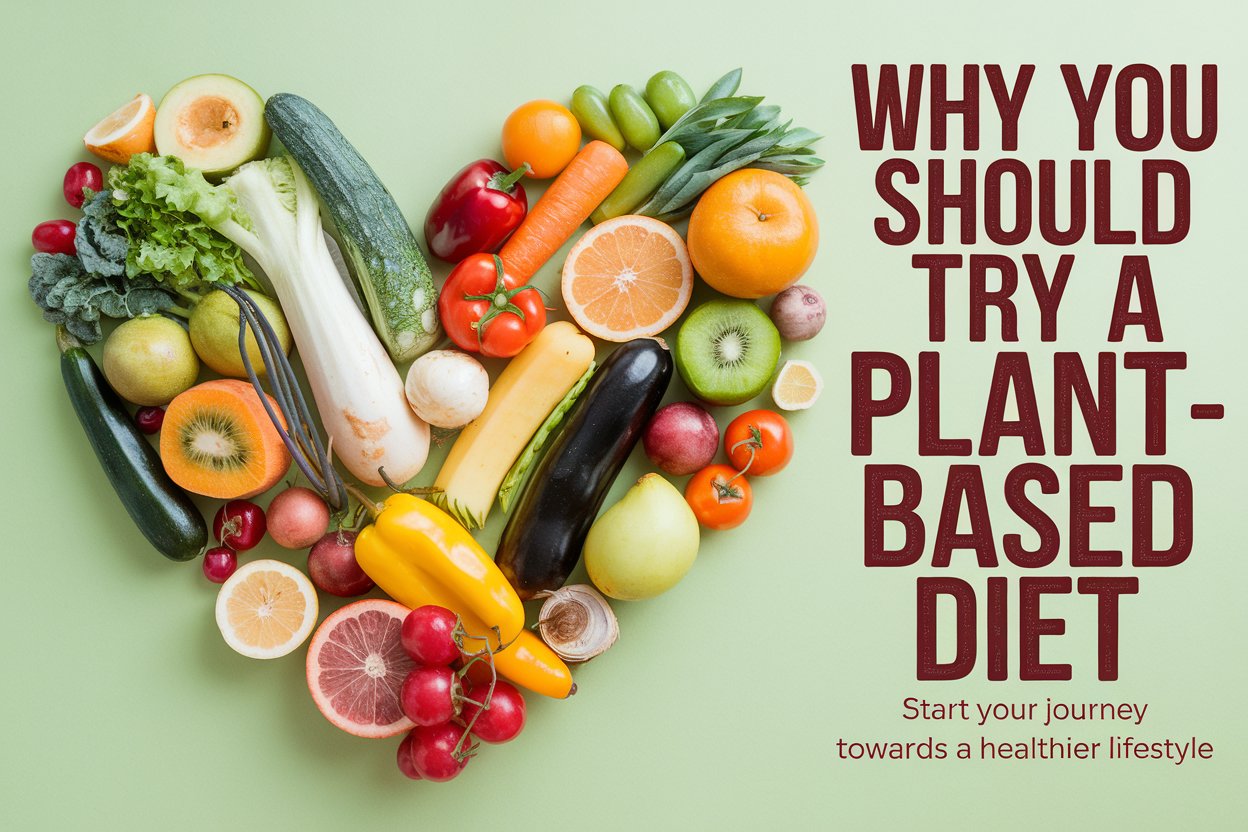Why More People are Switching to Plant-Based Diets (and How You Can Too)
In recent years, plant-based diets have soared in popularity, offering benefits for both health and the environment. Whether you’re aiming to improve your well-being, lower your carbon footprint, or simply try new, delicious foods, transitioning to a plant-based lifestyle can be incredibly rewarding. But what does “plant-based” really mean, and why should you consider it?
What is a Plant-Based Diet?
A plant-based diet emphasizes foods primarily derived from plants—think fruits, vegetables, grains, legumes, nuts, and seeds. Unlike strictly vegan or vegetarian diets, which eliminate all animal products, a plant-based diet can be more flexible. For example, a flexitarian approach allows for moderate consumption of animal products while still focusing on plant-rich meals. Even within vegan or vegetarian circles, the emphasis is on whole, unprocessed plant foods, such as whole grains like quinoa and oats or fresh fruits rather than refined products.
Ready to make the switch? Let’s dive into the numerous benefits of a plant-based diet.
Health Benefits of Going Plant-Based

Switching to a plant-based diet comes with a variety of scientifically backed health benefits:
- Improved Heart Health: Studies suggest that plant-based diets can significantly lower the risk of heart disease. A diet rich in fruits, vegetables, and whole grains tends to be low in saturated fats, which can help reduce cholesterol levels and improve cardiovascular health. The American Heart Association supports plant-forward eating patterns to reduce blood pressure and lower the risk of stroke.
- Lower Risk of Type 2 Diabetes: Research has shown that plant-based diets are associated with a reduced risk of developing type 2 diabetes. A study published in JAMA Internal Medicine found that people following plant-based eating had a significantly lower risk of diabetes compared to those on omnivorous diets.
- Weight Management: The high fiber content in plant-based foods helps regulate hunger, promoting a healthy weight. Fiber-rich foods, like legumes and whole grains, can keep you feeling full for longer while naturally lowering your calorie intake. In fact, plant-based diets have been shown to be effective in weight loss without the need for calorie counting, as per a study in the Journal of the Academy of Nutrition and Dietetics.
- Cancer Prevention: Eating a diverse range of fruits and vegetables provides antioxidants that may protect against various types of cancer. The World Cancer Research Fund has linked plant-based eating with a lower risk of certain cancers.
As you can see, plant-based diets not only help your body but can also contribute to a healthier planet. Let’s explore how!
Environmental Benefits of Plant-Based Eating
Beyond personal health, a plant-based diet can also have a positive impact on the environment. The production of plant-based foods generally uses fewer resources than animal farming, which contributes to greenhouse gas emissions, deforestation, and water pollution.
- Reduced Carbon Footprint: By cutting back on meat and dairy, you’re significantly reducing your carbon footprint. According to a study from the University of Oxford, individuals who adopt plant-based diets can lower their food-related carbon emissions by up to 73%.
- Conservation of Natural Resources: Animal agriculture is resource-intensive. Switching to plant-based foods helps conserve water and land, making this lifestyle choice more sustainable in the long run. The Food and Agriculture Organization of the United Nations highlights how plant-based diets can help preserve our natural resources.
If you’re thinking about transitioning to a plant-based diet, you don’t have to jump in all at once. Here’s how to get started in a simple, stress-free way.
Tips for Transitioning to a Plant-Based Diet
Making the switch to a plant-based diet doesn’t have to be daunting. Here are some simple tips to ease into this lifestyle:
- Start Small: Begin with one or two plant-based meals per week, like “Meatless Mondays.” As you get comfortable, you can gradually increase the number of plant-based meals in your routine.
- Explore Plant-Based Proteins: It’s easy to meet your protein needs with options like beans, lentils, tofu, quinoa, and nuts. These foods offer all the essential amino acids your body requires.
- Experiment with Recipes: There are endless plant-based recipes online, from hearty lentil soups to colorful veggie stir-fries. Try out new dishes and see what excites your taste buds!
- Pay Attention to Nutrients: While plant-based diets are naturally rich in vitamins and minerals, it’s important to watch for nutrients like Vitamin B12, calcium, and iron. Consider fortified foods or supplements if necessary. The Harvard T.H. Chan School of Public Health provides insights on balancing plant-based nutrients.
So, how do you feel about taking the plunge? Let’s wrap up with the big picture!
Conclusion
Whether you’re fully committed to going plant-based or just curious about incorporating more plant foods into your diet, the benefits are undeniable. From lowering the risk of chronic diseases to reducing your environmental impact, eating more plants is a powerful step toward a healthier, more sustainable future. So why not give it a try? You might just discover a new way of eating that makes you feel amazing, inside and out.


Good information
Goood
Informative
Good blog
Good job 👌
It is a very nice study health food, how it changes our body and keeps us fit, researching on this topic your efforts are mind-blowing.
Great information! Regarding health
Plant-Based Diet is very important for me. It’s healthy with no side effect!
Interesting information healthy information
Very good information you have shared I will start to follow it
very informative
Beneficial
Great knowledge
Very good information,, i have applied this to my life and it changed!,🙏💯
It’s a great initiative towards healthy life style
Very informative
A harmless way to change our body with diet and keeps us fit, researching on this topic your efforts are mind-blowing.
Well said! Simple changes can lead to amazing benefits
Thank You
nice
Thank you
For good health person should have good diet and plant based diet give you optimum energy without any side effect you guys are doing really good research 👏
Rightly said
Useful information
Thank You
Great Information
Thank You
Information
Thank you
Informative
Eat healthy,live healthy.plan based products are great
Yup
nice content helpful information
Glad that you liked the content
Nice content
Thank You
Very Informative
Thank You
Thank You
Great content
Informative